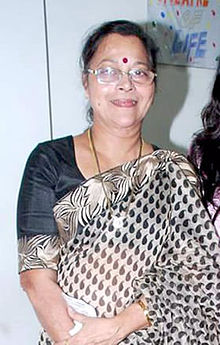Seema Deo: A Remarkable Journey through Indian Cinema
Seema Deo, an iconic figure in Indian cinema, has left an indelible mark on the entertainment industry through her incredible acting prowess and dedication to her craft. Born on January 31, 1927, in Mumbai, India, she emerged as one of the leading actresses of her time, captivating audiences with her versatile performances and strong on-screen presence. Her journey through the world of Indian cinema is a testament to her unwavering passion, resilience, and contribution to the art form.
Seema Deo's early life was marked by a fascination with performing arts. This passion led her to the prestigious Film and Television Institute of India (FTII) in Pune, where she honed her acting skills and gained a deep understanding of the nuances of the craft. After completing her training, she embarked on her cinematic journey, making her debut in the Marathi film "Shukrawar" (1954), which was a stepping stone to her illustrious career.
Her ability to effortlessly portray a wide range of characters allowed her to establish herself not only in Marathi cinema but also in Hindi and Gujarati cinema. One of her most memorable performances was in the Marathi film "Jhanjhar" (1953), where she portrayed a strong-willed and empowered woman, challenging societal norms and expectations. This role set the tone for the type of characters she would become synonymous with – women who were not just ornamental, but pivotal to the narrative.
Seema Deo's journey in Hindi cinema saw her working with renowned directors and actors of her time. Her notable films include "Ankush" (1986), where she delivered a gripping performance as a mother who seeks justice for her son's wrongful death, and "Krantiveer" (1994), in which she portrayed a woman fighting against corruption and injustice in society. These roles showcased her ability to bring depth and authenticity to her characters, making her a respected figure in the industry.
Her partnership with her husband, renowned actor Ramesh Deo, also bore fruit in the form of their production house, 'R.D. Productions.' Together, they created meaningful cinema that addressed social issues and touched hearts. Their collaborative efforts yielded films like "Pratigya" (1975) and "Ankush," which not only entertained but also resonated with audiences on a profound level.
Seema Deo's dedication to her craft extended beyond acting. She actively participated in various social and cultural initiatives, using her influence to make a positive impact on society. Her involvement in philanthropic activities, along with her husband, highlighted her commitment to giving back to the community that had embraced her work for decades.
Recognition for Seema Deo's contributions to Indian cinema came in the form of numerous awards and accolades. She received the prestigious Dadasaheb Phalke Award in 2019, a fitting tribute to her remarkable journey in the industry. This award, named after the father of Indian cinema, honored her exceptional career spanning over six decades.
Seema Deo's legacy continues to inspire generations of actors and film enthusiasts. Her ability to seamlessly transition between different languages and film industries showcased her versatility and adaptability. Beyond her acting skills, she was also celebrated for her humility, grace, and the respect she commanded from her peers.
As the curtains draw on the remarkable life of Seema Deo, her impact on Indian cinema remains evergreen. Her dedication, resilience, and passion for her art have left an indelible mark on the industry. She was not merely an actress; she was a trailblazer who shattered stereotypes and paved the way for more meaningful portrayals of women on screen. Through her cinematic journey, Seema Deo will forever be remembered as an icon who touched hearts, challenged norms, and contributed significantly to the rich tapestry of Indian cinema.










